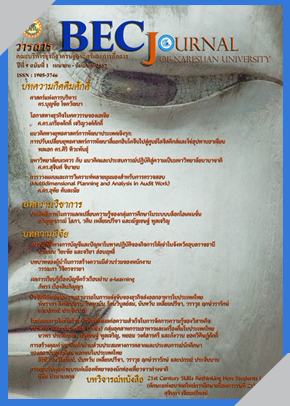บทบาทของผู้นำในการสร้างความมีส่วนร่วมของพนักงาน
Main Article Content
บทคัดย่อ
The Leader Role in Employee Participation
For managing organization to succeed, executives need to learn how to motivate their employees to participate and make sense of involvement. Previous studies have discussed the notion of employee participation for a long time and have agreed that its implementation is not easy. For implementation of employee participation, the leader must encourage employees to share their ideas and listen to them. Then, leader should allow employees to make decisions by themselves or give employees a chance to express their opinions in meeting. For high level of participation, employees must play major roles in organizational problem-solving and changing. However, creating employee short-term participation may be done by employing incentive systems that affect employee behavior changing in a short time. Meanwhile, motivating employee participation in the long run, must allow employees to involve in all activities directly, delegate authority to employees to make decisions that are related to their jobs and to give non-monetary rewards instated of financial rewards, such as praise. These practices would increase employee morale. Otherwise, leaders must be concerned about the interests, ability to participate, characteristics and needs of employees.


